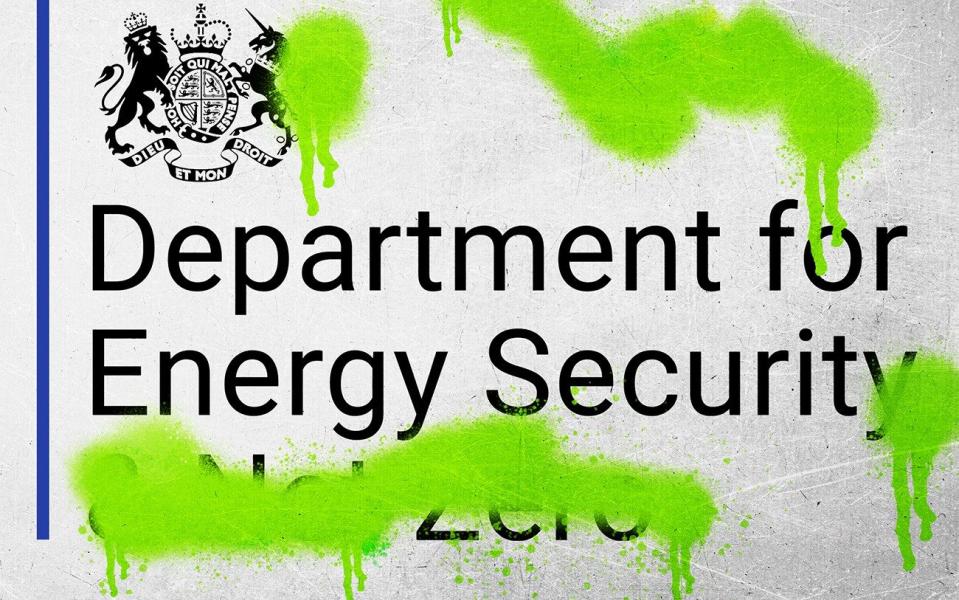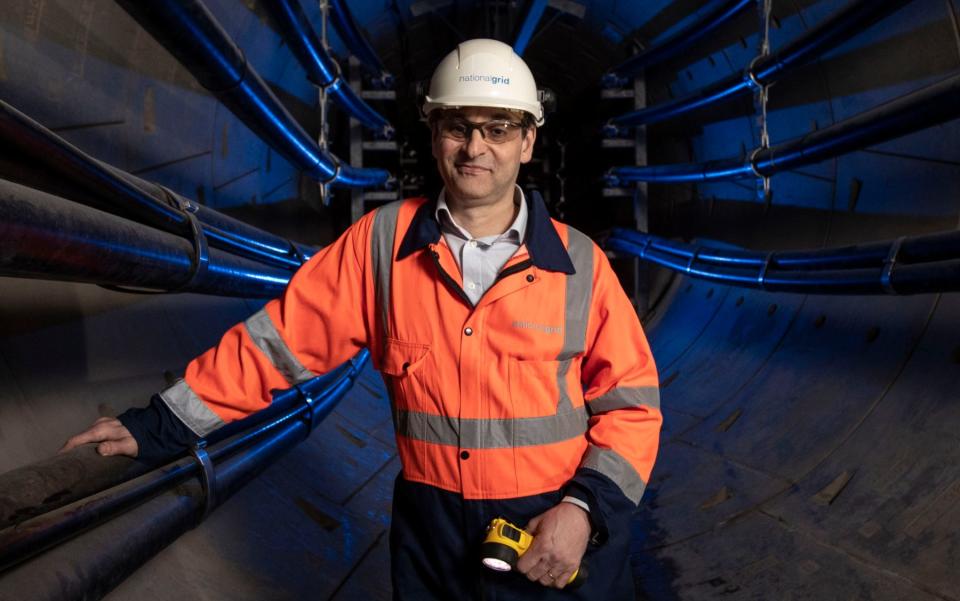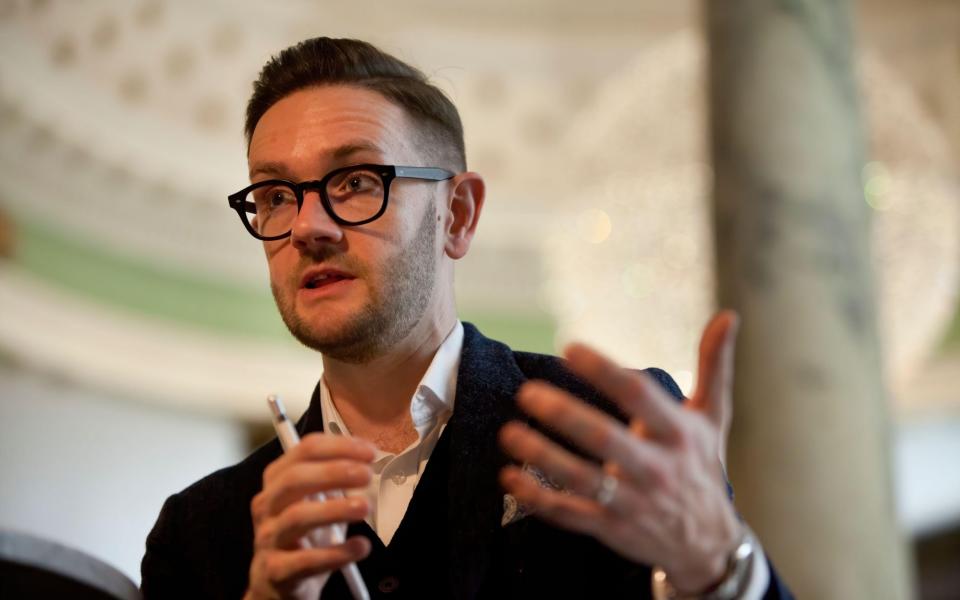How the climate establishment went to war over net zero jargon

To be an expert on the decades-long shift to green energy is to speak in a language alien to the rest of us.
Concepts such as Scope 3 emissions, carbon sinks and offsetting trip off the tongues of the evangelists behind the shift away from fossil fuels – much to the confusion of the public at a time when the green lobby is desperate for their support.
It is perhaps no surprise then that some insiders are demanding an end to the terminology of net zero. But the discussion over whether to dumb down the language of climate change has prompted a major rift in the UK’s climate establishment.
David Wright, the chief engineer of National Grid, denounced the phrase “net zero” for having little public recognition, suggesting it was green “jargon” that blocked understanding by businesses and the public. The criticisms – echoing those of Chris Stark, who just stepped down as chief executive of the Climate Change Committee – prompted an immediate angry reaction.
One leading Oxford University academic who helped pioneer the phrase suggested that abandoning it would confuse people even more.

Mr Wright said it was crucial for the UK to cut its carbon emissions, but this would only be politically achievable if people understood why it was necessary.
“I think the words net zero do not resonate with the public – I think a lot of people don’t really understand what it means,” he told the New Statesman Energy and Climate Change conference earlier this month.
“I think we need to be really clear about the opportunities for the country associated with the energy transition, and we should use plain English to really get that over to tell people what it’s going to mean.”
Wright is one of the UK engineering community’s leading experts on climate change, setting National Grid’s engineering strategy and also advising the Government on the move to cleaner energy.
However, he said he was feeling growing impatience with the language used by climate change experts because it had become jargonistic and confusing.
“Net zero implies a trade off with choices,” he said. “We need to use plain English and we need to stop using this sort of jargon and admit this is a real issue.”
Abandoning the phrase could prove awkward for the Government, which last year expensively rebranded its energy and business department as the Department for Energy Security and Net Zero (Desnz).
It follows similar criticism by Mr Stark, who recently stepped down as chief executive of the Government’s Climate Change Committee – itself overseen by Desnz.

His objection to the phrase was different – suggesting it had become politicised and was being exploited by “populist culture warriors”.
He said in a recent interview that he would be “intensely relaxed” about dropping the term, adding: “Net zero has definitely become a slogan that I feel occasionally is now unhelpful, because it’s so associated with the campaigns against it.”
The concept of “net zero” arose from the work of the Intergovernmental Panel on Climate Change (IPCC) in a report published just over a decade ago.
It said humanity could not stop all greenhouse gas emissions so it would have to find ways of removing CO2 from the atmosphere as fast as it was emitted.
That idea was embodied in the 2015 Paris climate agreement which set a goal of “achieving a balance between anthropogenic emissions and removals by sinks of greenhouse gases in the second half of this century”.
That language got shortened to “net zero” – a simpler phrase which appealed to experts but still often baffles the public. And it also allowed many companies and countries to avoid making real cuts by instead using “creative” carbon accounting.
The power of key phrases to promote brands or to articulate complex political and social issues is well known and often exploited by communications experts and marketing companies.
Phrases such as “white van man”, or “lycra louts” coined in the 1990s, highlighted dangerous driving by delivery drivers and cyclists, and helped prompt safety crackdowns, while Nike’s “Just Do It” slogan took the brand to new heights.
In UK politics the Conservatives’ 1979 election slogan Labour isn’t Working campaign was highly effective – perhaps trumped only by the pro-Brexit slogan “Take Back Control.”
Few would argue that net zero can reach such heights. But communications experts warn that changing it could cause even more confusion.
“Net zero is not a perfect phrase,” said Simon Lewis, former director of corporate affairs at Vodafone, Centrica and NatWest, and ex-communications secretary to the late Queen, who now runs Lewis Advisors, a PR consultancy.
“But it is a term that is now broadly understood by the public to mean an overall and enduring reduction in carbon emissions.
“In communications terms, I think trying to introduce any new terminology now may confuse and dilute the message, which would ultimately be unhelpful.”
A Desnz spokesman said it had commissioned research to see how well people understood the phrase. “Achieving net zero is very much part of the public conversation, with research showing almost 90pc of people are aware of it.”
Those whose research actually prompted the phrase are mounting a powerful defence against ditching it – arguing that changing it would lead to even more confusion.
Myles Allen, professor of geosystem science at Oxford University, co-authored the IPCC research that led to the idea of net zero and strongly defends the phrase against attacks from what he calls the climate establishment.
In a lecture last week he said: “The solution is absolutely not, as Chris Stark recently suggested, just to stop talking about net zero altogether and focus on reducing emissions.
“Net zero means what it says. It means we’re actively taking carbon out of the atmosphere and getting rid of it permanently at exactly the same rate that we are still releasing it by burning fossil fuels.
“It would be a great idea to tighten up the definition of net zero so as to exclude the more creative offsetting schemes and carbon accounting wheezes. If we’re going to meet our climate goals, we have to stop fossil fuels from causing global warming before the world stops using fossil fuels. And the only way of doing that is net zero.”
The jargon may be alienating, but the climate lobby is not willing to let go of it just yet.

 Yahoo Finance
Yahoo Finance